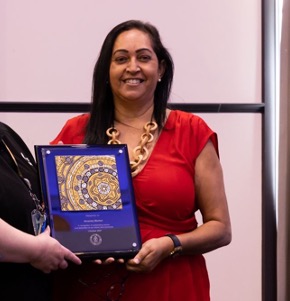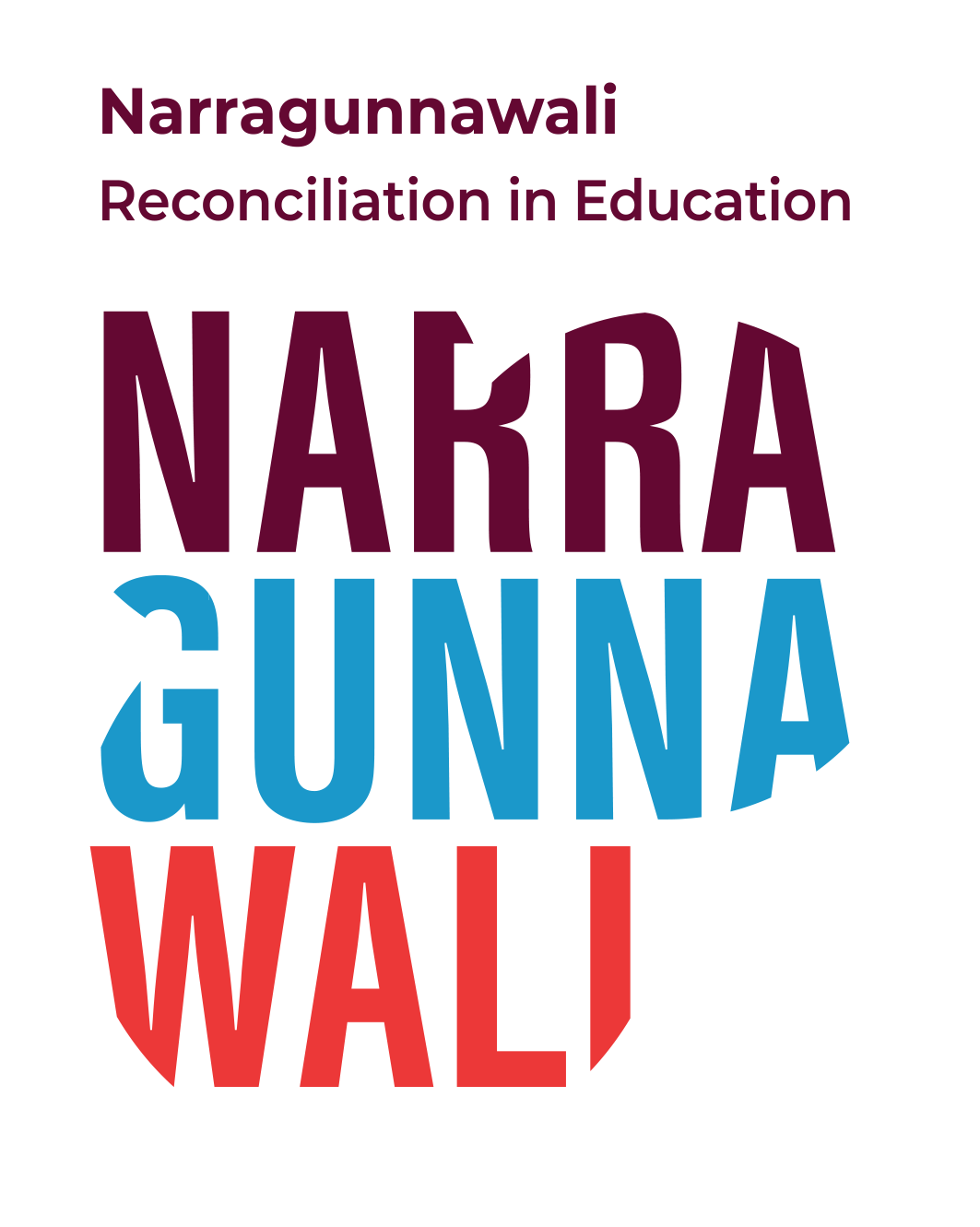Teacher Feature – Melody Ingra

Melody Ingra, Goodstart Early Learning’s National Cultural Liaison, is a proud Gooreng Gooreng/Wakka Wakka woman from Central Queensland, raised on Country in Yallarm-Gladstone. She has been an educator in primary and secondary schools in urban, regional and remote communities, and a Principal Project Officer for Early Childhood Education and Care, delivering the Remote Indigenous Professional Development Program to First Nations educators.
We sat down with Melody to talk about her passion for early learning, Goodstart Early Learning’s Stretch Reconciliation Action Plan (RAP), and why it’s important reconciliation is part of every child’s early learning experience. This interview has been edited for length and clarity.
Where does your passion for early education come from?
Galen Nyeeri! I have been a teacher for many years in all sectors. One of my roles was Indigenous Education Advisor, where I set up Murri playgroups for our mums with babies that needed somewhere to connect. This sparked my interest in early childhood – I loved working with little people and creating learning experiences for them.
I've have six children of my own and they all went to early childhood centres. We continue to have a great relationship with one of those centres – my kids can go back and there’s still that sense of belonging. Early childhood for me is important and can provide a strong foundation for children’s journey in education.
How does your work drive reconciliation at Goodstart?
I work for Goodstart Early Learning as their National Cultural Liaison. My role is to support the implementation of the organisation’s Stretch RAP and support the 671 Centres to develop their own through the Narragunnawali platform.
I work with the organisation to weave reconciliation through all it does, based on the five dimensions of reconciliation, and also in the centres, helping them embed Aboriginal and Torres Strait Islander perspectives in their everyday practices.
Why do you think reconciliation in education is important from the earliest of ages?
When you teach little people about the First Nations peoples of this country, they straight away have this sense of connection, and this creates a ripple effect. At Goodstart we have 72,000 children, so that's 72,000 families we impact. When these kids grow up knowing the Traditional Owners of Country, they cherish the Custodianship of the Land.
I think all children should grow up knowing whose land they’re on and that’s how they grow to respect Country and respect First Nations people. By learning about First Nations peoples, history and cultures though genuine experiences, they develop understanding, empathy and connection.
Tell us a little bit about Goodstart’s reconciliation journey – has it all been smooth sailing?
It's been a slow process. When I first came on board four years ago, we only had 94 centres on the journey and 14 published RAPs. Four years later, we’ve got 669 out of 671 centres on the journey and 219 centres with published RAPs. For me it's been the little actions which have become a big movement in our organisation.
When we first started to talk about reconciliation, we wanted to build it into everything we did. It wasn’t just up to our centres – it was up to everybody in our organisation. It’s now become a personal, continuous journey for staff. We wanted all Goodstart Centres to have their own RAPs, and we’ve kept it organic by not having targets and showing that reconciliation is our way of doing business.
How do you actively honour each service and their unique place on their reconciliation journeys?
We see it as their own individual RAPs, centres and communities. It all goes back to them and their ability to connect with community – because community is the best resource. Community is where you get information from and how you grow professionally and personally.
We tell our services to do an Acknowledgement of Country, but then we ask how they really connect with Country, community and include Aboriginal and Torres Strait Islander families in these conversations. Some people don't feel comfortable – and that's okay.
If you can’t connect with community, connect with community-controlled organisations. See what your local Aboriginal Medical Service is doing. See if there are yarning circles set up by the different education groups in each state. Go and talk to them!
That way it becomes individualised. It’s about all of our centres getting on the journey and building their own version of progress, relationships, opportunities, and respect, and making it local.
How important is it to balance 'expectations' with 'opportunities' for Aboriginal and Torres Strait Islander community involvement in reconciliation activities?
I encourage our centres to put their hand up and participate in community events. We set up Goodstart marquees to provide some activities for children to do, which started with NAIDOC days, but it’s important to be a part of the community all year round.
Goodstart Ballina take the children to participate in the NAIDOC march. It’s beautiful to see these non-Indigenous kids, all these tiny people with their educators, pushing strollers. That for me is heartfelt and that's how you know we’re making change.
How does one strike a balance between individual and shared accountability for reconciliation commitments?
It is a journey and it's not just about getting to the published stage of a RAP. It's about all the things you learn along the way that shape you both personally and professionally. I've seen this happen with our educators in centres when we send them to reconciliation events – it actually changes their lives.
As they learn about the true history of this country, they’ve made the decision to make a change for the better of future generations – especially in their own families and communities, as well as in their centre.
This journey is something that's ongoing, so there will be many challenges – but that's okay. We’re all up for the challenge and all need to investigate own biases. The Early Learning Framework talks about bias. We need to talk about white privilege.
What words you could offer our Narragunnawali community in the task of 'taking time and making time' to build genuine relationships with community? What is the value of this?
We have the opportunity with reconciliation to make a change for future generations, so that my grandkids don't grow up going through the same things that my forefathers and I went through. I want change for the future so we aren’t still fighting for the same things into the next generation. We want kids to grow up with a connection to Country and an understanding of Aboriginal and Torres Strait Islander people.
We can make that difference for our Country and reconciliation has been the process to begin that journey. The Narragunnawali platform is a huge part of that. I wish all educators accessed it to play their part, remembering that they don’t have to reinvent the wheel – it’s all there if and when you want it.
-
18 Apr 2024Narragunnawali News and Updates
-
18 Apr 2024Teacher Feature – Sherri Bryers, Tasmania
-
18 Apr 2024Civil Discourse: Post-Referendum for schools

